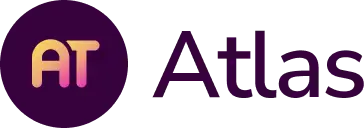By Sofía Amador, Professional Development Consultant & IB and Curriculum Coordinator, Marian Baker School
Professional development must be at the core of any successful educational experience, and leading a curriculum development process is not the exception. It all begins with professional development, but… how can leaders get teachers on board in a culture where designing curriculum is an activity in which teachers traditionally have not had a part in?
Determining the Professional Development Model
Before considering the professional development topics, choose the right model that matches your school setting: time available, degree of collaboration among faculty members, and level of trust shared by the teachers. For example, if teachers are not used to working in independent, self-managed groups, the professional learning community model would not be recommended at first because PLCs are based on collaboration among team members.
Also, take a look at your audience. What will engage them? Thinking out of the box in the way professional development is provided will help teachers develop ownership and commitment towards the curriculum development process.
According to Malcolm Knowles, considered the father of Andragogy, a synonym of adult learning, there are four principles that characterize adult education:
- Adults participate actively in constructing new learning.
- Adults bring previous experiences to new situations.
- Adults expect new experiences to be applicable to their lives.
- Adults expect learning experiences to open opportunities for problem solving.
In a few words, successful professional development must meet the learning needs of teachers. Remember to consider your audience’s preferences and needs, the environment in which they interact with others, and the level of creativity involved in the learning experiences.
Bonus Resource: School Leadership and Developing Teacher Leaders >>
Differentiating the Professional Development
When it comes to delivering a professional development session, one size fit all must be a concept long forgotten. Extensive lectures through which participants sit quietly and, at some point in the presentation, they implement a strategy or two must be replaced by short presentations to introduce key ideas and hands-on activities that allow participants to apply the new concepts.
A key component of these activities is differentiation. Teachers, as adult learners, know what strategies work better for them. Content becomes more interesting when they can adjust it to their previous experiences and ways of learning. Yes, differentiating the curriculum development process might sound messy, but it is doable.
As you lead the process of curriculum development, guide teachers to reflect on how they want to implement it and the goals they need to succeed. To design a curriculum based on interdisciplinary units, for example, key questions teachers need to reflect on include:
- What is my understanding about the curriculum approach adopted by the school?
- What are my points of agreement?
- What are my points of concern?
- What are my needs for professional development?
- What subjects do I choose to integrate first?
- What subjects do I consider writing solo units for?
- What strategies will I need to work collaboratively?
- What is my preferred work time… in school or at home?
- How much coaching do I need… face-to-face or online?
Bonus Resource: Personalize Teacher PD By Modeling Teaching Practices >>
Coaching Through the Curriculum Development Process
Leading a curriculum development process involves follow up, coaching, being there for the other. In their book The Coach Approach to School Leadership, the authors state that principals and leaders are responsible for supporting instructional coaching as a way to improve learning. The authors state that (p.11):Umm…curriculum leaders as coaches? Yes... it is possible, as long as the principals put effort in creating a culture of trust, collaboration and respect. Within this scenario, curriculum leaders can accompany teachers in the curriculum journey. Becoming a leader-coach implies examining one’s leadership style, learning about coaches’ best practices, defining areas for growth to become a leader-coach, and searching for resources on this topic.
Once the curriculum leader gains understanding of the coaching approach, a few adjustments will help in becoming actively involved in the coaching process.
- Schedule time with the teachers. Both one-one-one and group meetings, as well classroom observations, as a way to gather data and provide feedback into the process.
- Design a unit planning guide to help teachers find their way as they write the units.
- Encourage teachers to engage in self-assessment and peer assessment. A unit assessment rubric that reflects the curriculum development process is a creative and efficient way to help teachers perform their own assessments.
Bonus Resource: Upgrade Instructional Coaching with These Five Tips >>
Making Time to Celebrate!
What’s there to celebrate?... Plenty of stuff, of course! Small accomplishments as big events are equally worthwhile celebrating. The purpose of celebrations lays in the motivation teachers get as a result of recognition. But, watch out... the loads of paper work, lack of time, or simple stress can easily get in the way of celebrating.
- Get a pile of sticky notes and leave positive messages in teachers’ cubbies
- Invite a teacher to showcase a unit to a new group of teachers being inducted into the curriculum development process
- Organize a curriculum fair in which teachers go around stations where other teachers are presenting about a particular area:
- Crafting creative enduring understandings and essential questions
- Showcasing the unit-standards alignment process
- Designing interdisciplinary units
- Mastering alternative forms of assessment
No matter where you are in the curriculum development process, there is always a reason to celebrate. Make it part of the way you do things in your school. Invite parents, students and other community members to these celebrations. Allow teachers to shine!
The next step is to organize this process for your school – learn how educators are documenting professional development programs.
[box] FariaPD supports teachers and leaders around the world with hands-on, active and creative professional development experiences. Join one of our online or in-person professional development events, each designed to support the unique goals of your school or district. FariaPD is part of Faria Education Group, an international education company that provides services and systems for schools around the world including ManageBac, a curriculum-first learning platform, OpenApply, an online admissions service, and Atlas, a tailored curriculum management solution for schools. [/box]
Contributing Author:
Dr. Sofía Amador is a consultant in the areas of curriculum, strategic planning and accreditation. She is currently the IB and Curriculum Coordinator of the Marian Baker School in San José, Costa Rica. Dr. Amador has helped several schools in Latin America develop a standard-based curriculum development process using Atlas Rubicon Curriculum Mapping System. She has also led a network of curriculum leaders in San José for the past four years.

